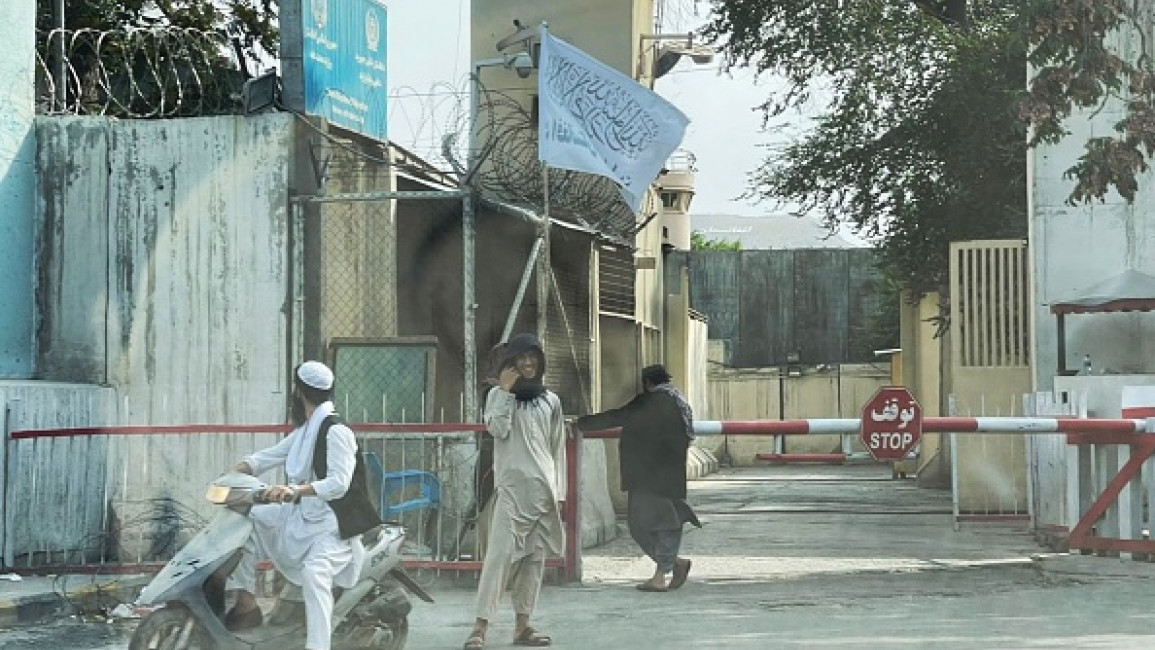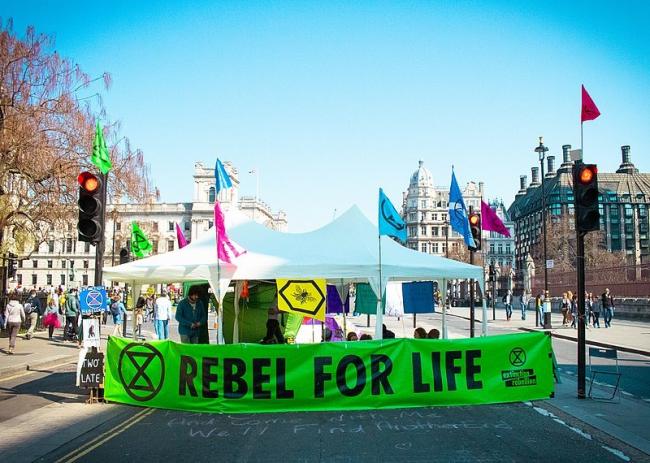Ken Loach: Keir Starmer Is Mr Bean Trying to Act Like Stalin
AN INTERVIEW WITH KEN LOACH
Last week, Ken Loach was kicked out of the Labour party. In his first interview since his expulsion, the socialist filmmaker told Jacobin that Keir Starmer’s purge of the Left is driving the party to destruction.

Ken Loach said he was kicked out of the Labour Party last week after he refused an order to renounce left-wing friends and comrades who had been ejected. (Chris Payne / Flickr)
When Jeremy Corbyn was leader of the Labour Party, socialist filmmaker Ken Loach was given pride of place — and a prominent seat on the conference floor, after rejoining the party he had left years earlier in disgust at Tony Blair. The Palme d’Or–winning filmmaker’s position drew the ire of Blairites like former MP Mike Gapes, who still today resent being “banished to the balcony” under the left-wing leadership.
But today, right-wingers are cheering, after the I, Daniel Blake director was expelled from the party last week. Loach, whose films are considered landmarks of social realism, said he was kicked out after he refused an order to renounce left-wing friends and comrades who had been ejected, along with the now-banned groupings of which they were members.
Announcing his removal via Twitter, Loach was defiant — declaring that “Starmer and his clique will never lead a party of the people” and insisting “We are many, they are few.” Speaking to Jacobin in his first interview since his expulsion, the filmmaker paints a bleak picture of life inside the party for the Left. He told Mattha Busby that recent events suggest Labour is no longer interested in listening to its members — and that it is retreating to the staid, right-wing politics of Blair’s era, in the hope of coddling the Tory press.
This interview has been edited slightly for clarity and brevity, and the Labour Party was contacted for comment.
MB
What exactly happened with your ejection from the party?
KL
The letter that I got charged me with supporting a proscribed organization; well, in law as I understand it, if you pass a law to criminalize an act, you can’t prosecute someone for having done that before the law was passed. You can’t retroactively punish people for things that were not crimes when they did them.
All the ridiculous evidence that they trotted out against me quoted things that happened way before these proscriptions. So how does that stack up? I don’t have the energy or the will to be involved in a protracted dispute, because it’s such a waste of time. I’d rather work and do a film, than talk to malicious people. It’s like ending an abusive relationship, actually — it’s a weight off your shoulders.
MB
What was the extent of your involvement with these now-banned organizations?
KL
I’m not a member of any of the proscribed organizations. But I support many of the people who have been expelled, because they are good friends and comrades. A witch hunt within the party is in progress, and I will not renounce them. Party apparatchiks are exercising arbitrary and completely undemocratic rule; making the rules up as they go along. For someone like Keir Starmer, who is meant to be a senior lawyer and former head of the Crown Prosecution Service, to give it all his seal of approval just shows what a shoddy man he is.
MB
It seems there’s no love lost between yourself and the leader. What are your views on his leadership of the party more generally?
KL
What Starmer is trying to do is very clear. As a leader, he is totally untrustworthy and a plain liar. He said he would unite the party, but he has driven out over 120,000 members. His actions suggest that was his intention from day one, so there was no way he intended to unite the party. He consciously misled the membership. He revealed himself as untrustworthy and really unprincipled. And his intention, as far as I can see, is to have a small party with no troublesome activists, with no transformative program. It’s a retreat from left domestic policies on public ownership, housing, the welfare state, and the environment. It’s a retreat from a foreign policy based on international law and human rights.
What he’s doing through expulsions and driving people out is reproducing Blair’s party — a small party where he speaks to the electorate through the media and tries to convince the right-wing press that Labour is no threat to their power.
MB
You’ve been among those downplaying the issue of antisemitism in the party, and you were accused of Holocaust denialism. Do you think this played any role in your ejection?
KL
My position on Holocaust denial is very clear. I am totally opposed to it. It’s there on the record. “In a BBC interview, where speech overlapped, my words have been twisted to suggest that I think it is acceptable to question the reality of the Holocaust. I do not. The Holocaust is as real a historical event as the Second World War itself and not to be challenged,” it says. I’ve had threats to my family over this, people coming up to me in the street, pushing you up against the wall, just the foulest abuse.
MB
I can tell you are frustrated over events throughout the past several years. Do you harbor any bitterness over your expulsion?
KL
For me, it’s a badge of honor — I have no problem falling out with Starmer’s clique. Democracy is dead in the Labour Party: constituency parties have been shut down for no reason; resolutions have been ruled out of order if they’ve criticized Starmer or supported the Palestinians. They’ve been told they’re not allowed to pass resolutions commenting on the fact that they can’t pass certain resolutions. It’s a total denial of internal democracy.
MB
Sounds fairly Orwellian. Does it seem chaotic at all?
KL
The whole disciplinary process, there is no due process at all. People are told they’re suspended, they write back, they get no reply; it goes on for months and months. For Starmer, who made his name as a lawyer, it makes him look ridiculous. He’s a figure of fun. They said that with Gordon Brown as leader, it was like Stalin became Mr Bean; for Starmer, it’s the other way around, he’s Mr Bean trying to act like Stalin, and he’s doing it very clumsily.
MB
I have the image now of Stalin ordering Peter Mandelson to scrub clean the Mona Lisa and chastising him for not doing a good job. But on a serious note, what do you make of this moment in British politics?
KL
There is a huge question for democracy. Under Jeremy Corbyn, Labour was the largest political party in Europe: almost six hundred thousand members. The members were very strongly united on the party’s program, which would have been transformative. But a clique within the parliamentary party, most of them Blairites, successfully led efforts to undermine it. You know the story of the leaked emails from Labour HQ — a number of officials were actively working against a Labour victory in 2017 and rejoiced when they lost, amid the most foul-mouthed insults to people like Diane Abbott and the few MPs loyal to Corbyn, and now they’re being rewarded under Starmer. It all leads me to wonder whether it is possible to elect a party committed to transformative change; is the British establishment so all-powerful that it can stop it happening?
Ken Loach is a socialist filmmaker. His works include Kes and I, Daniel Blake.
ABOUT THE INTERVIEWER
Mattha Busby is a freelance journalist, currently based in Mexico, who has written widely on health policy and society.























